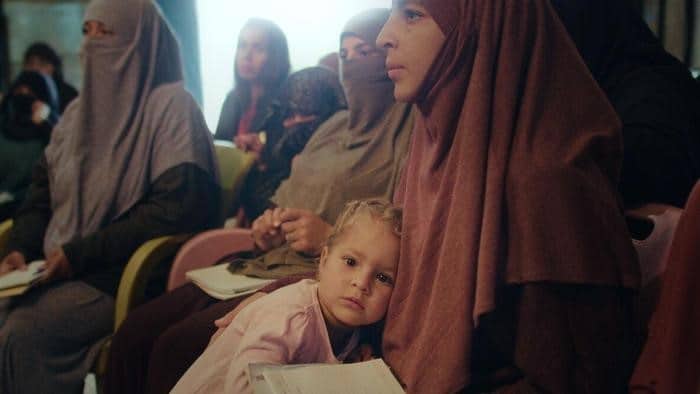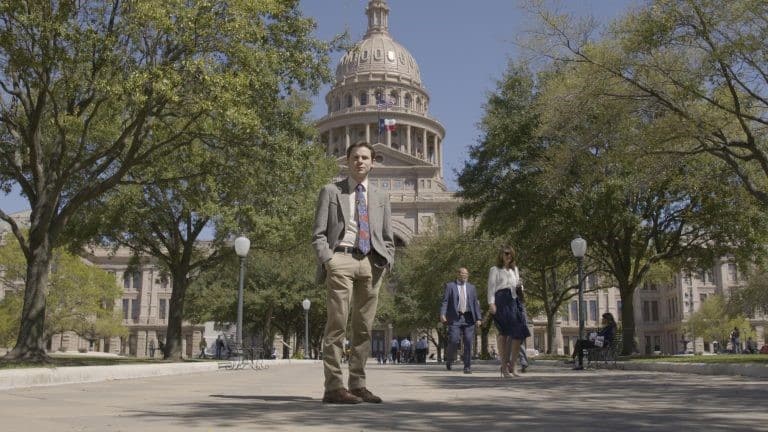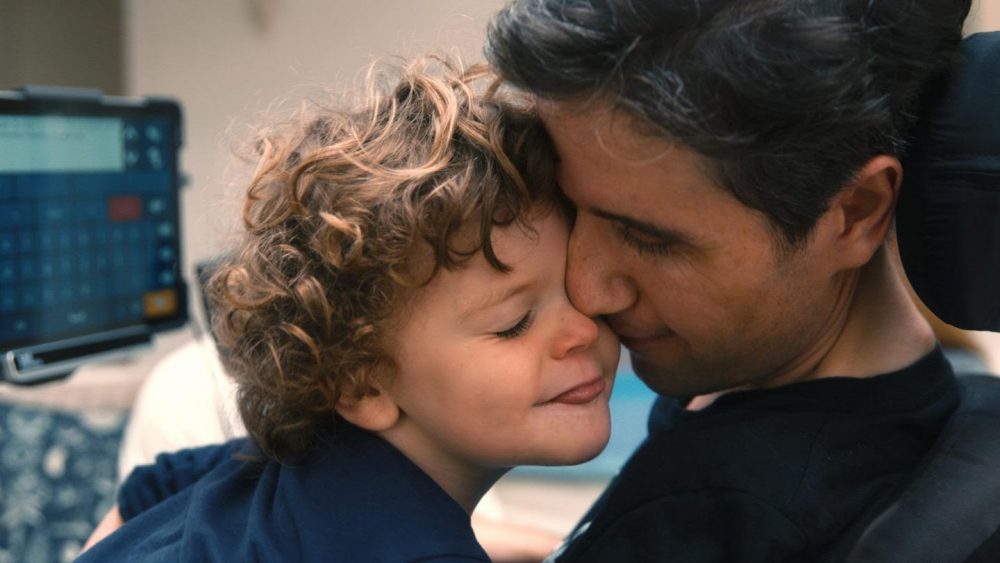Read also:
How to Watch FX Live Without CableHow To Watch AMC Without CableHow to Watch ABC Without CableHow to Watch Paramount Network Without CableThe remaining trio of true stories at this year’s festival focus on politics and its impact on both individuals and society at large.
(This dispatch is part of our coverage of the 2021 SXSW Film Festival.)
The final three films featured in the SXSW 2021 Documentary Competition deal with the government at a local, state, national, and even global level. They look at how politicians deal with the issues facing their constituents, how regular people decide to get involved, and how to react when your citizens return home after terrifying times.
Alba Sotorra Clua’s documentary, The Return, Life After Isis, focuses on the last of those points, as it depicts the lives of the women that left their European and North American countries to join ISIS as teenagers. Towards the beginning of the film, one of the women says, “I wanted to feel useful,” and in many ways, ISIS gave them a specific role to fill: the housewife. The extremist religious cult preyed on young girls that felt unwanted, using social media propaganda to convince them to leave their homes and travel to the Middle East.

Clua’s film focuses on a few of these women, who tell their stories from beginning to end, using a chronological structure to show the rise and fall of the terrorist group through this lens. Interspersed, the director shows these women waiting at a makeshift camp in Syria, waiting to hear if their countries will welcome them back. The answer across the board has been a vehement and resounding “No.”
Many of these women became mothers, wishing that the claims and promises of paradise would be fulfilled, as even their children continue to speak of these hopes while living at the camp. Regardless of the inhumane and degrading conditions, the seemingly-constant bombings, and the attacks of innocent citizens by ISIS military, they stayed because they thought it’d be the safest place for their children.
Currently, there are 64,000 women and children near the Syrian border at this camp, awaiting approval from countries that now reject them. These women don’t have homes, losing citizenship in the places they grew up, depriving them of ties to their childhoods and families.
Clua’s documentary, a powerful and fascinating portrait of a group that was never the focus during ISIS’s height of terror, sees these women with overwhelming empathy. Humans without a place to go, they’re stuck, living with the pain of being brainwashed by a cult, hoping to find some normalcy in the coming years. And for many of them, they’ve been at this camp for years, watching their children grow up, celebrating birthdays, and thoughtfully wading through their experiences.
The Return, Life After Isis knocks you back early and often, telling a story about women who have been forgotten. Clua’s doc isn’t stylish or flashy, but allows its subjects to pull you in and hold you close.

A few years ago in Amarillo, Texas, 24-year-old Hayden Pedigo created a viral YouTube video portraying a man running for local city council. Months later, he joined the race with a serious goal of joining Amarillo’s council and changing his 200,000 person city for the better. The more time that passed in Kid Candidate, a new documentary from Jasmine Stodel, the more you root for Pedigo’s longshot bid, mostly due to his clear sincerity for enacting change.
With a Christian-upbringing and a homeschooled education, Pedigo put time into experimental music, playing at gigs around Texas, and being invited to SXSW. Often, he doesn’t fit into the faith-based town of Amarillo, but neither do other young people. The South Sudanese community rarely feels represented, too, becoming one of Pedigo’s largest group of supporters, people that welcome him with open ears and open arms. After a bit of time campaigning, he realizes that this election holds weight for people in Amarillo, specifically for minority and lower-income communities.
But, as Stodel shows, he’s not ready for it, anxious about the mounting pressure and bogged down by his tenuous relationship with his emotionally belittling dad, who once compared him to a “broken alarm clock.” Pedigo chooses a local lawyer and advocate as his mentor, a man who degrades him to his face and to Stodel’s camera, understanding that he’s not the best solution to Amarillo’s city-wide issues, but a solution nonetheless. It comes as no surprise when Pedigo loses the election and comes in second place behind the incumbent, despite the goodness of his intentions.
Stodel’s doc ends up having more to say about local elections and local governments, portraying Amarillo as a place that can relate to thousands of other cities. It rides the line of being a greed-based system, one built on a set of religious beliefs that help a certain, white demographic, instead of the idea that each person in the community has a right to resources. By interviewing politicians, restaurant owners, and others from the town, Stodel gives a tiny glimpse into the workings of a single city, a look that resonates far beyond Amarillo’s borders.

Not Going Quietly focuses on the role of the advocate. One advocate and organizer in particular: Ady Barkan. Barkan has become a household name over the last five years, from confronting Arizona senator Jeff Flake on an airplane to giving speeches to thousands as his voice gets weaker and weaker. Barkan suffers from ALS, an incurable, paralyzing, deadly disease that many of us might only associate with the Ice Bucket Challenge of 2014.
Directed by Nicholas Bruckman, the documentary follows Barkan months after he’s diagnosed with the disease, making quick work of his life prior to ALS. He’s been an activist for years, married with a newborn son, using his voice to lift up others’ voices. So, make no mistake, Barkan won’t give up activism because he can’t speak or can’t move or can’t eat on his own. He sets off across the country, with 3-4 years estimated to live, attempting to bring the issues of medical care and healthcare to the forefront of voters’ and politicans’ minds.
Barkan can only be described as tireless. He constantly gives speeches, he wheels up the door of legislators’ offices demanding to be heard, and he cracks jokes throughout it all, possessing a clear understanding of both his limitations and his might. Bruckman catches each of his one-liners, some more significant than others. At one point, Barkan tells a captive crowd, “My voice is weak, but together we can be heard loud and clear.” He knows the power that a united community possesses.
Not Going Quietly as a documentary stays focused on Barkan’s fight for fairness and equity of America’s broken healthcare system, as he interviews presidential candidates, gives a momentous speech to Congress augmentative and alternative communication since he was unable to speak himself. He says, “Although my story is tragic, it is not unique,” which could be summed up as a central message of both Barkan’s activism and the documentary’s thesis.
Barkan’s story, along with his continued battle for life, makes for an affecting piece of filmmaking championing a specific cause and a single person.